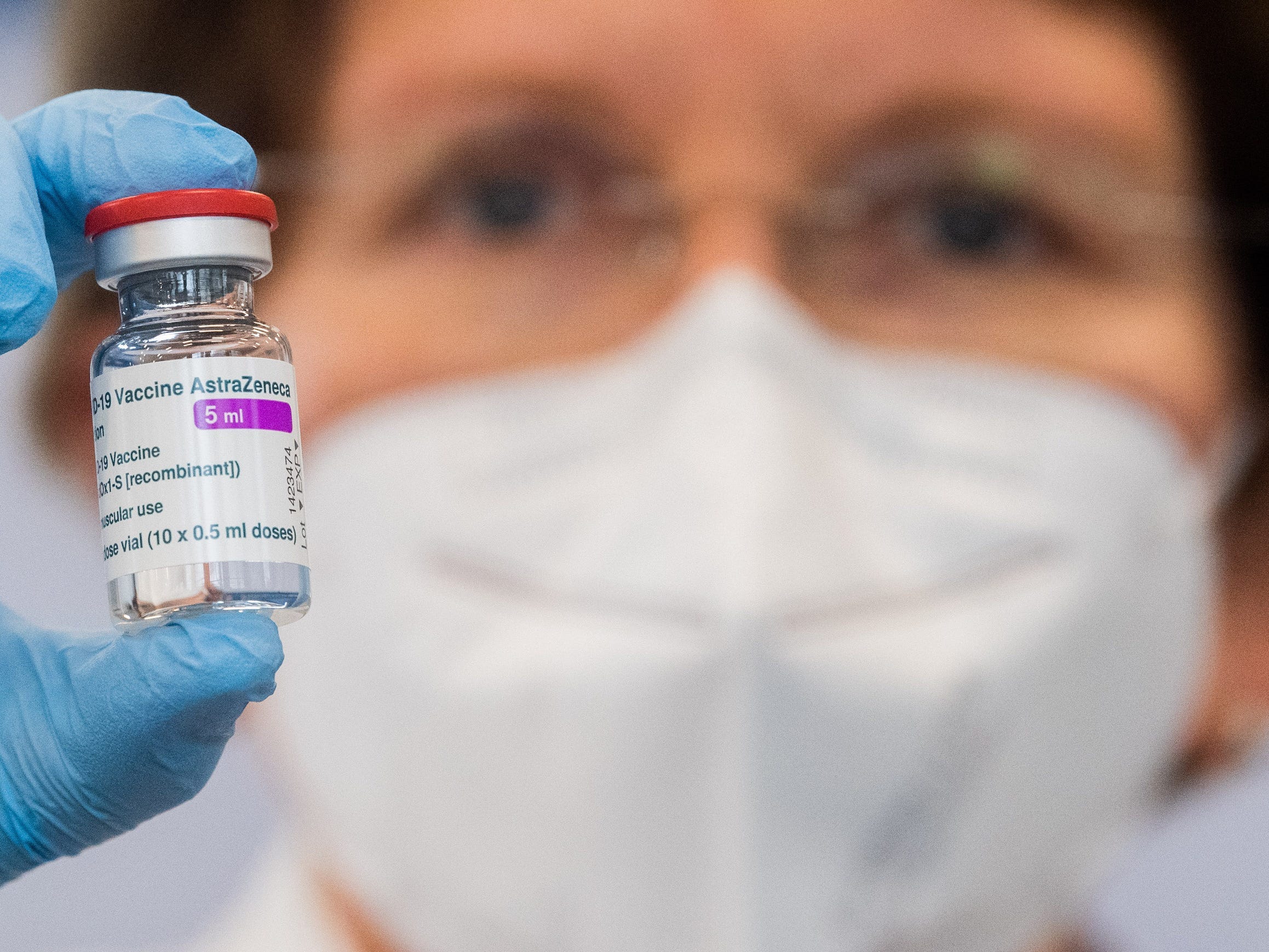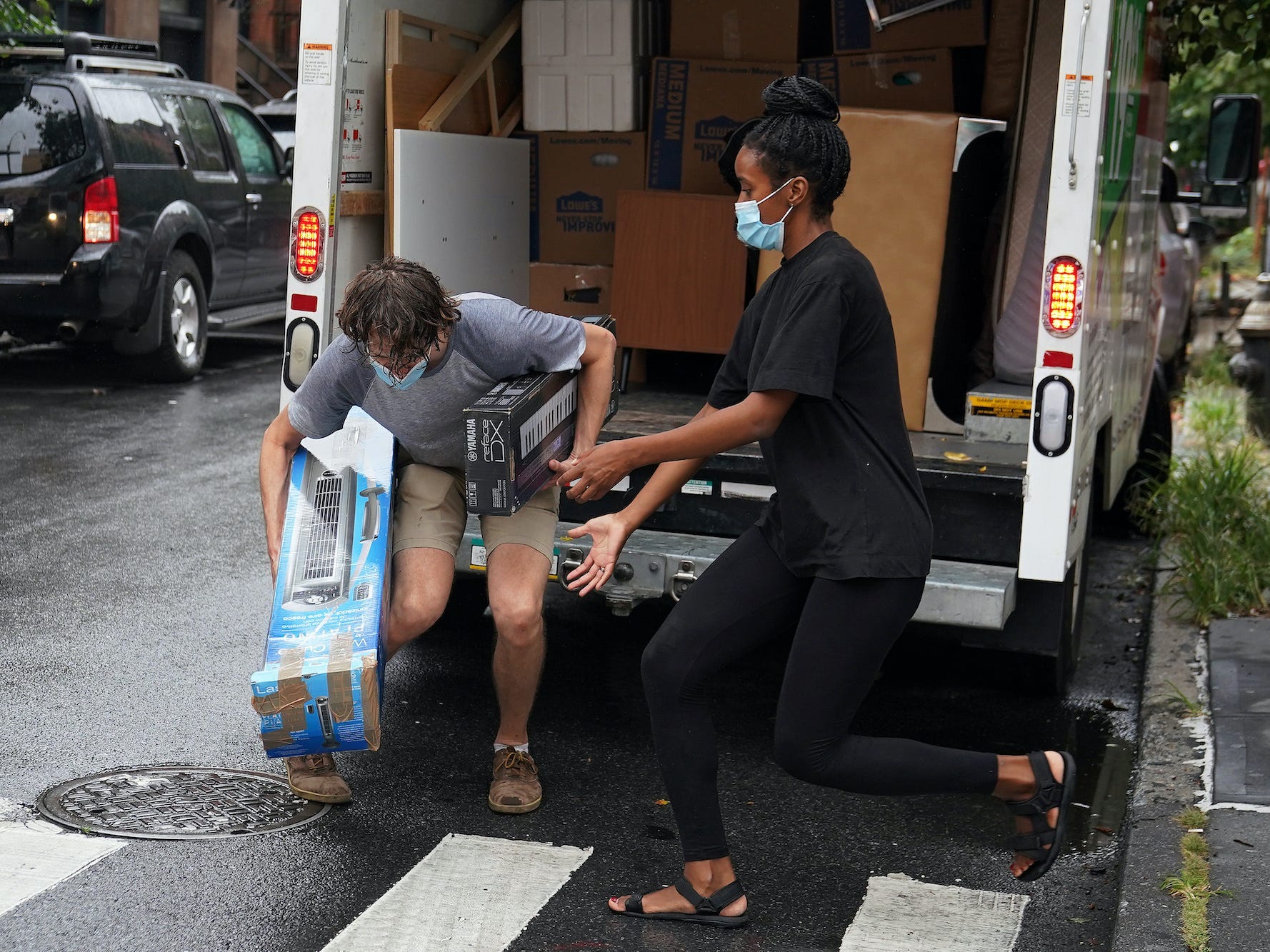Hello,
Welcome to Insider Healthcare. I'm Lydia Ramsey Pflanzer, and this week in healthcare news:
- We got good news about Pfizer's shot while manufacturing problems may delay shipments of J&J's jab;
- How scientists are rethinking treatments for Alzheimer's disease;
- Inside the race to disrupt primary care.
If you're new to this newsletter, sign up here. Tips, comments? Email me at [email protected] or tweet @lydiaramsey125. Now, let's get to it…

It'll be too late for AstraZeneca's vaccine in the US
It seems like there was news about every major vaccine rolling out across the US and Europe.
- Moderna said on Wednesday that it launched the first study testing a version of Moderna's coronavirus vaccine tailored to fight a concerning variant.
- Pfizer on Wednesday shared that its vaccine was highly effective in a trial of 12- to 15-year-olds.
- Then on Thursday, Pfizer said that longer-term data show that its shot with BioNTech remains highly effective.
- And: The New York Times reported Wednesday that roughly 15 million doses of the Johnson & Johnson vaccine were ruined because of a factory mixup. It's an issue that doesn't impact doses that have already been shipped and used.
Then there's AstraZeneca's shot. Countries are still pulling back from using the vaccine while investigators take a closer look at reports of rare blood clots.
So far, Europe's top regulator has maintained that the vaccine's benefits outweigh its risks.
Even so, Andrew Dunn reports, by the time AstraZeneca secures authorization here in the US, we might not need it.
The US may instead opt to give its doses to other countries.
Here's why>>
AstraZeneca's COVID-19 shot will come too late for the US

Skye Gould/Insider

What scientists are learning about Alzheimer's
Allison DeAngelis this week took a look at the conversation that's evolving around Alzheimer's disease.
It's an area of drug development that's filled with failures.
Now, scientists are seeing whether more targeted rather than universal approaches might be the way out of a $1.1 trillion problem.
Get the full story here>>
Scientists are coming around to a surprising new understanding of Alzheimer's disease, and it could supercharge drug development for the $1.1 trillion problem

Parsley Health's new center in NYC's Flatiron neighborhood.
Courtesy Reid Rolls for Parsley Health

Courtesy Reid Rolls for Parsley Health
The race to disrupt primary care
Shelby Livingston on Tuesday had the scoop that a top Walmart healthcare exec, the company's chief medical officer, is leaving the retail giant.
You can read the full memo on his exit that Shelby obtained.
It's another departure from Walmart's healthcare leadership after Sean Slovenski left last summer. And it's happening after we reported in February that Walmart's slowing its ambitious health clinics push.
Walmart is just one of a multitude of forces trying to reshape how we get primary care in the US.
This week, Shelby and Patricia Kelly Yeo took a look at how four primary-care companies are holding on in the increasingly competitive space.
Find out more>>
4 primary-care upstarts share how they plan to fend off Amazon Care and other telehealth giants as they vie for a slice of a $170 billion market

People are moving to lower cost-of-living states during the coronavirus pandemic, but some are discovering they won't be able to afford healthcare coverage.
Carlo Allegri/Reuters

Carlo Allegri/Reuters
People are moving to places that haven't expanded Medicaid
Hundreds of thousands of people are moving to states with lower costs of living, like Florida and Texas.
But, as Kimberly Leonard reports, people who once qualified for Medicaid are learning that their new states haven't expanded the program.
It's an issue that can make their healthcare more expensive.
Dig in more here>>
People flocked to Florida and Texas for a lower cost of living during the pandemic. Some were shocked when their healthcare got way more expensive.
More news that kept us busy this week:
- Crossover Health on Monday said it raised $168 million. See the presentation the key Amazon healthcare partner gave to investors about the future of its business.
- Cityblock Health raised $192 million, an extension of its Series C. Tiger Global led the round, adding Cityblock to the list of startups the $50 billion asset manager has backed in the past five months.
- Alloy Therapeutics raised $75 million. The biotech's goal is to make $1 in profit. Peter Thiel and 8VC think it's worth $563 million.
- We read the 323-page financial filings 23andMe released as part of its SPAC deal so you don't have to. Here are the 5 key challenges its business faces.
- Plus: Take a look at the life and career of 23andMe CEO Anne Wojcicki, who's about to be worth more than $1 billion when the genetic-testing giant makes its public debut.
- Lydia